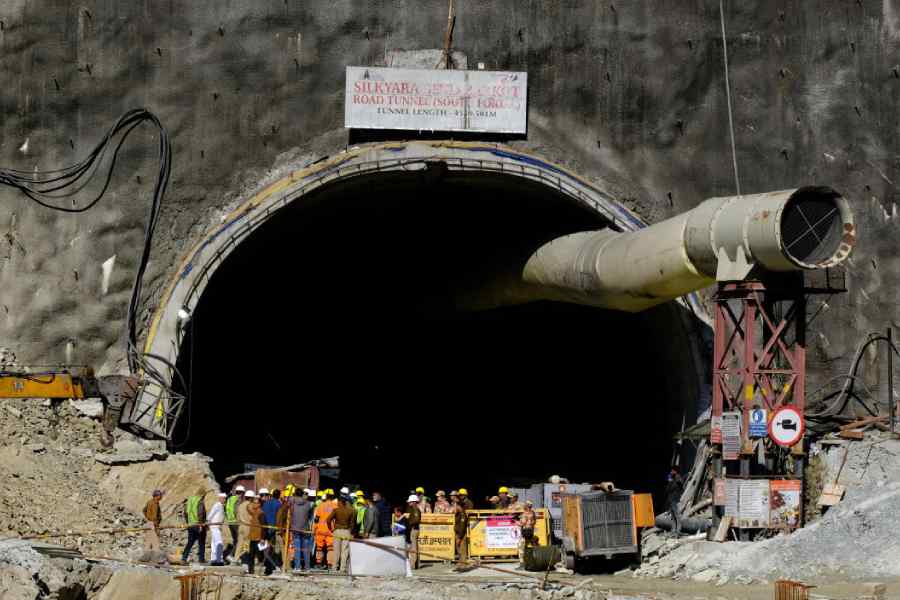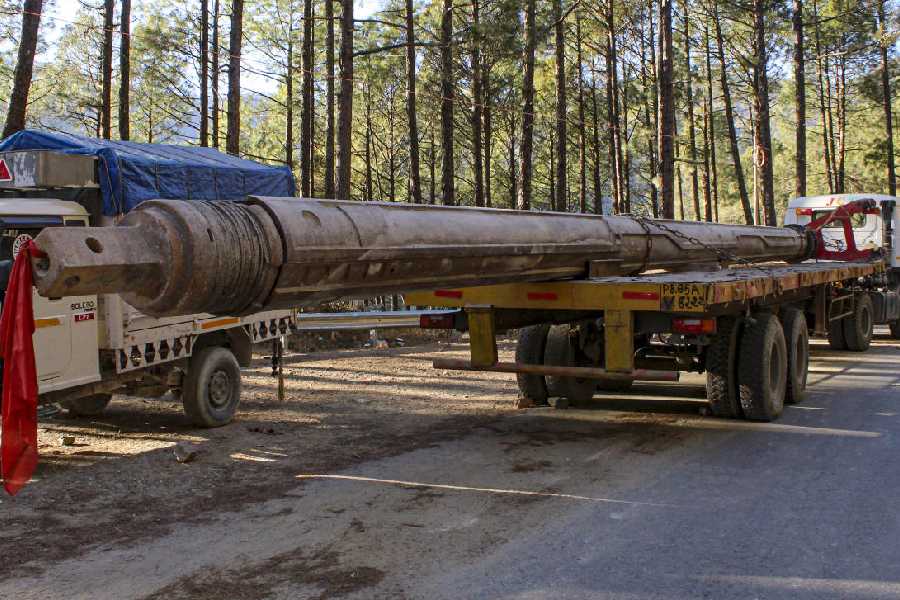Behind the collapsed section of the tunnel in Uttarkashi, camaraderie and mutual support among the trapped workers could give way to acute psychological trauma as the days go by and uncertainty looms, mental health experts have said.
Clinical psychologists and psychiatrists who are familiar with how the mind might respond to isolation, confinement and lack of privacy say the trapped workers, who are currently receiving food and water, might require psychological first-aid while inside and after rescue.
The 41 workers have been trapped in a 240-metre segment of the under-construction tunnel for more than eight days. Multiple attempts to drill a passage through the rubble have failed, prompting authorities to seek an alternative rescue route.
“Who breaks down when will depend on individual levels of hardiness, resilience and the capacity to cope,” said T.S. Sathyanarayan Rao, professor of psychiatry at the JSS Hospital, Mysore.
“But the longer they remain trapped there, the greater the count of workers likely to experience psychological trauma.”
In circumstances where a fairly large group of people collectively experience the same stressful situation, Rao said, a few may break down relatively quickly, a few may have long coping capacity, while the majority will be in between.
“In the early days, they will draw courage from each other — that’s how group dynamics works. The threat of trauma bonds them,” said Shrradha Sidhwani, a clinical psychologist in Mumbai who has helped victims of psychological trauma after the Mumbai terrorist attacks and other incidents.
But Sidhwani and other experts say the prolonged duration of the workers’ confinement is a concern. “As the days go by, the risk of psychological breakdown will grow, although that point will depend on the individual. A breakdown could mean heightened anxiety, depression and anger,” Sidhwani said.
The individual levels of resilience often depend on past experiences, experts say. “Those who have been in particularly difficult circumstances or even in similar life-and-death situations are likely to be among the more hopeful within the group,” said Mridula Apte, a clinical psychologist in Pune.
The longer they remain trapped, Apte said, more among them will feel a sense of helplessness. She said: “This question will loom in their minds — will I ever be saved? Anxiety could make people expect the positive, but a sense of helplessness coupled with depression could lead to a sense of resignation.”
The prolonged confinement and the repeated failure of the rescue attempts may not be the only source of mental stress for some of the workers, said Deepali Batra, a clinical psychologist in New Delhi.
“Some might have other family-related struggles going on that could enormously exacerbate the mental stress from being trapped,” she said.
Experts predict that even after rescue, some of the workers might experience post-traumatic stress disorder — a condition marked by flashbacks or recurrent memories of being trapped — nightmares, and severe emotional distress that could lead to sleep disturbances, binge eating or binge drinking.
“As long as they’re trapped, they need to be supported also with encouraging messages — that everything is being done to get them out,” Batra said. “But after rescue, some might need psychological support for post-traumatic stress disorder.”
Psychologists have for over three decades studied how the human mind responds to isolation and confinement. Many such studies have aimed at gaining insights into how astronauts might cope with long-duration missions to Mars and relied on scientists spending many months in Antarctica.
One such study by researchers at the University of Houston, which observed scientists in Antarctica, noted a decline in positive emotions such as enthusiasm and satisfaction, and an increase in negative emotions such as anxiety, anger or hate.
The study found that while the increase in negative emotions depends on individual and interpersonal factors, the decline in positive emotions is a universal experience in isolated, confined and extreme environments.











